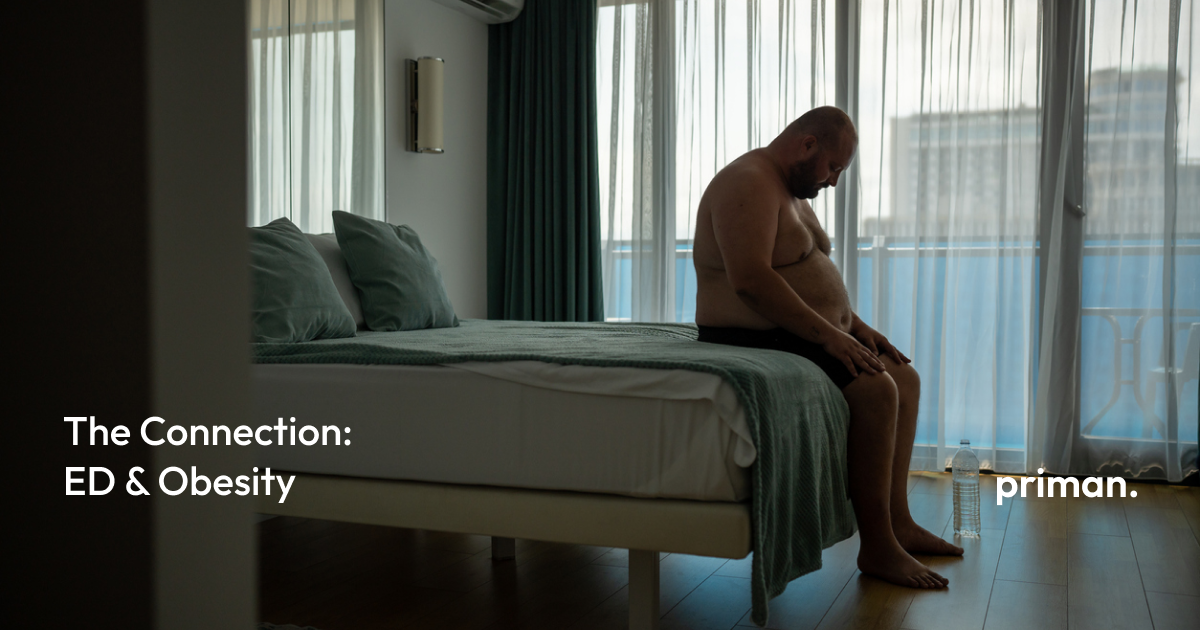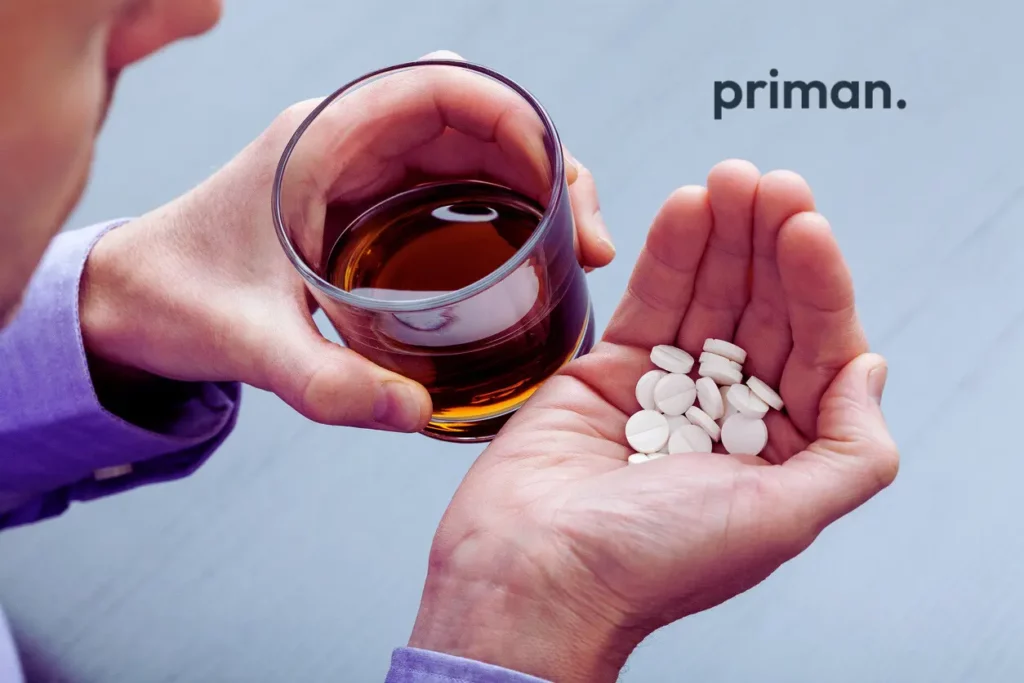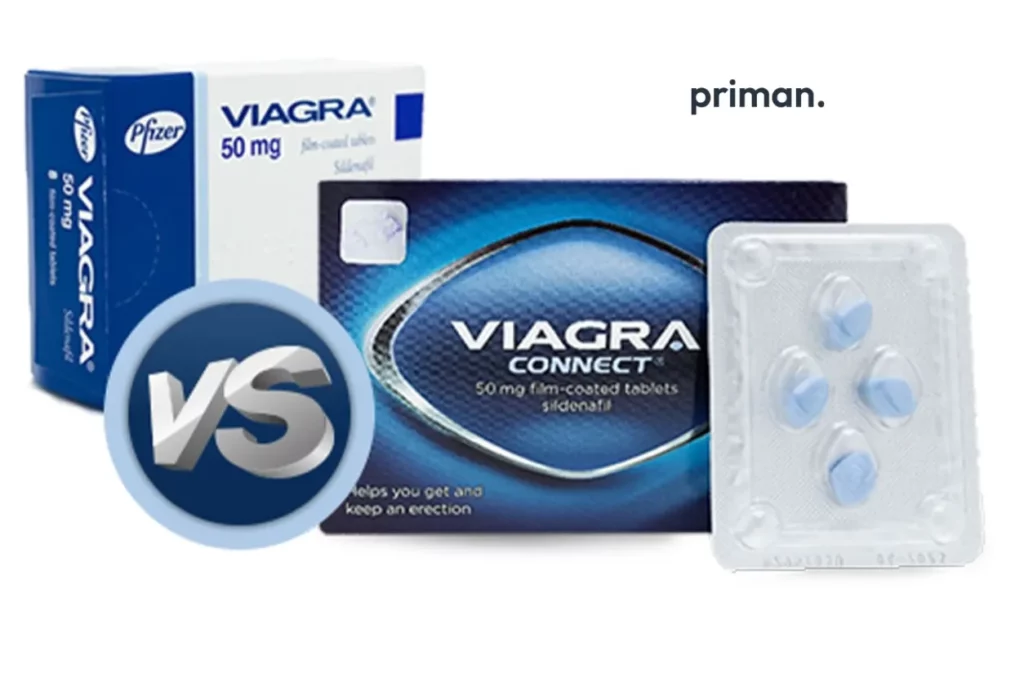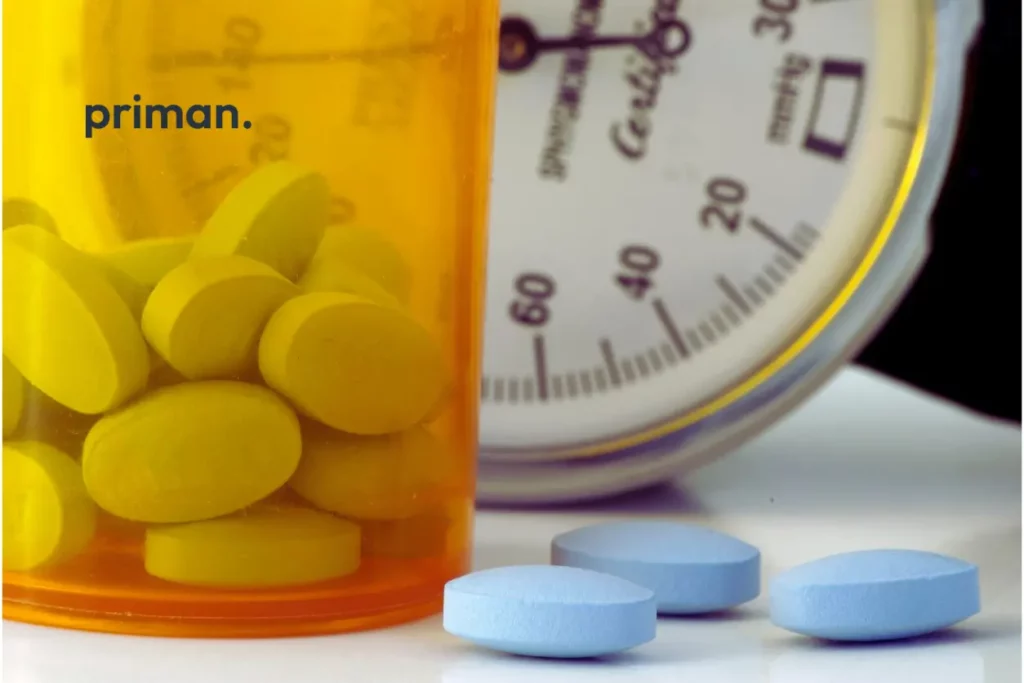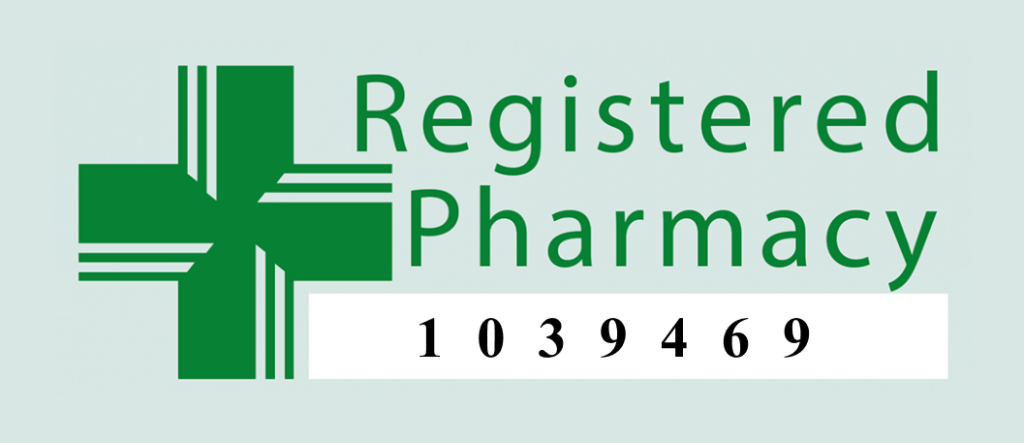Erectile dysfunction (ED), the persistent inability to achieve or maintain an erection sufficient for sexual intercourse, can be a source of stress and anxiety for many men. While ageing is a common risk factor, excess weight and obesity are increasingly recognised as significant contributors to ED. Here in the UK, where almost two-thirds of adults are overweight or obese, understanding this link is crucial.
This blog explores the scientific evidence behind the connection between obesity and Erectile Dysfunction, examining how weight gain can impact your sexual health. We’ll also delve into the potential mechanisms at play and the positive changes you can make to improve your erectile function.
Cause of Erectile Dysfunction
Erectile dysfunction is characterised by the persistent inability to attain and/or maintain penile rigidity sufficient for sexual intercourse. It is a multifactorial condition arising from impairments in various physiological systems.
Here’s a breakdown of potential contributing factors:
- Psychogenic: Anxiety, depression, performance stress, relationship issues
- Endocrine: Hypogonadism (low testosterone)
- Metabolic: Obesity, diabetes mellitus
- Vascular: Atherosclerosis, peripheral vascular disease
- Lifestyle: Tobacco use, excessive alcohol consumption
- Neurologic: Neurogenic disorders (e.g., spinal cord injury, multiple sclerosis)
- Pelvic Trauma/Surgery: Radical prostatectomy, pelvic fracture
- Iatrogenic: Medications (antidepressants, antihypertensives), illicit substances
- Peyronie’s Disease: A plaque formation within the tunica albuginea causing penile curvature
Obesity and Erectile Dysfunction
Studies consistently demonstrate a strong association between obesity and ED. Research published in the National Institutes of Health (NIH) reveals a considerably higher prevalence of ED in obese men compared to those with a healthy weight. This risk progressively increases with a rising Body Mass Index (BMI).
ED is common in the UK, with around 4.3 million men estimated to be suffering from the condition. It found that men with a BMI exceeding 30 (obese category) were twice as likely to experience ED compared to men within a healthy weight range.
How Obesity Affects Erections
Erection is a complex process involving a synchronised interplay between nerves, blood vessels, muscles, and hormones. Obesity disrupts this delicate balance in several ways:
- Vascular Issues: Excess fat tissue can lead to impaired blood flow throughout the body, including the penis. This is because obesity promotes the build-up of plaque in arteries, a condition known as atherosclerosis. When blood flow to the penis is restricted, achieving and maintaining an erection becomes difficult.
- Hormonal Imbalance: Obesity can significantly impact testosterone levels, the primary male sex hormone responsible for sex drive and erectile function. Research suggests that obesity can decrease testosterone production and increase levels of oestrogen, a female sex hormone. This hormonal imbalance disrupts the signals necessary for proper erectile function.
- Chronic Inflammation: Obesity is linked to chronic, low-grade inflammation throughout the body. This inflammation can damage the delicate tissues within the penis, further hindering blood flow and erections.
- Psychological Factors: The emotional and psychological effects of obesity can also contribute to ED. Low self-esteem, body image concerns, and depression associated with obesity can negatively impact sexual desire and performance.
How Weight Loss Can Improve Erectile Function
The good news is that even modest weight loss can significantly improve erectile function in men with obesity. Studies show that weight loss as little as 5-10% of body weight can lead to substantial improvements in ED.
Here are some lifestyle changes you can incorporate to promote weight loss and potentially improve your erectile function:
- Diet: Embrace a healthy diet rich in fruits, vegetables, and whole grains while limiting processed foods, sugary drinks, and unhealthy fats.
- Exercise: Regular physical activity, even brisk walking for 30 minutes most days of the week, can make a big difference.
- Sleep: Prioritise good sleep hygiene for optimal hormonal balance and overall health.
- Stress Management: Techniques like meditation or yoga can help manage stress, which can contribute to ED.
- Medication: Weight loss medications, such as GLP-1 injections (Wegovy, Mounjaro or Saxenda) or tablets can help in losing weight.
Treatment Options for Erectile Dysfunction
ED being a common concern, and the good news is there are treatment options available! The best approach depends on what’s causing the problem and your individual situation. Doctors will consider these factors when creating a personalised treatment plan.
- Lifestyle Changes: Often, the first step is making healthy adjustments to your daily routine. This might include quitting smoking, cutting back on alcohol, exercising regularly, and maintaining a healthy weight. Recent studies even show that aerobic exercise can be especially beneficial.
- Oral Medications: Many men find success with medications like Sildenafil (Viagra), Tadalafil (Cialis), Vardenafil (Levitra) and Avanafil (Spedra). These pills work by increasing blood flow to the penis, making it easier to achieve an erection during sexual stimulation. However, they aren’t a perfect fit for everyone, especially those with certain health conditions or who have recently undergone surgery.
- Vacuum Erection Devices (VEDs): If medications aren’t your preference, a VED might be a good alternative. This non-invasive device uses a pump to create a vacuum, drawing blood into the penis and causing an erection. A constricting ring is then placed at the base of the penis to maintain it.
- Counselling: For men experiencing stress, anxiety, or depression that’s contributing to ED, psychosexual counselling can be very helpful. A therapist can work with you and your partner to address these issues and improve your sexual satisfaction.
Important to remember: Open communication is key. Talk to your healthcare professional about any concerns you have regarding ED. They can guide you through the different treatment options and help you find the best solution for your needs.
Key Takeaway
Weight loss appears to be a safe and effective first-line treatment for ED, particularly in overweight and obese men. Its multifaceted benefits include increased testosterone levels, improved endothelial function, reduced inflammation, and a lower risk of metabolic and cardiovascular complications. For optimal patient care, a multidisciplinary approach incorporating weight loss strategies alongside other ED treatment modalities may be warranted.
Clinical Evidence: A meta-analysis by Ding et al. (2021) analysing randomised controlled trials (RCTs) concluded that weight loss significantly improved erectile function in overweight or obese men with ED. The intervention group achieved a mean weight loss of 18.07 kg, with a corresponding improvement in International Index of Erectile Function (IIEF) scores.
Seeking Medical Help: If you’re struggling with both obesity and ED, consulting your healthcare professional is crucial. They can assess your individual situation, explore potential underlying causes, and recommend a personalised treatment plan. Treatment options might include lifestyle changes, medications, or even therapy to address any psychological factors.
Reference List
- Erectile dysfunction (ED): Symptoms, causes, and treatment (2014) Healthline. Available at: https://www.healthline.com/health/erectile-dysfunction.
- Erectile dysfunction: Symptoms & types (no date) WebMD. Available at: https://www.webmd.com/erectile-dysfunction/guide-chapter-erectile-dysfunction-symptoms-risks.
- Erection problems explained (2023) Viagraconnect.co.uk. Available at: https://www.viagraconnect.co.uk/en-gb/erection-problems/erection-problems-explained.
- Kawasaki, N. et al. (2012) “Obesity-induced endoplasmic reticulum stress causes chronic inflammation in adipose tissue,” Scientific reports, 2(1). doi: 10.1038/srep00799.
- Liu, Y. et al. (2023) “Association of BMI with erectile dysfunction: A cross-sectional study of men from an andrology clinic,” Frontiers in endocrinology, 14. doi: 10.3389/fendo.2023.1135024.
- Mobley, D. and Baum, N. (2015) “The obesity epidemic and its impact on urologic care,” Reviews in urology, 17(3), pp. 165–170.
- Moon, K. H., Park, S. Y. and Kim, Y. W. (2019) “Obesity and erectile dysfunction: From bench to clinical implication,” The world journal of men’s health, 37(2), p. 138. doi: 10.5534/wjmh.180026.
- Wing, R. R. et al. (2010) “Effects of weight loss intervention on Erectile Function in older men with type 2 diabetes in the Look AHEAD trial,” The journal of sexual medicine, 7(1_Part_1), pp. 156–165. doi: 10.1111/j.1743-6109.2009.01458.x. – https://www.ncbi.nlm.nih.gov/pmc/articles/PMC6479091/.


